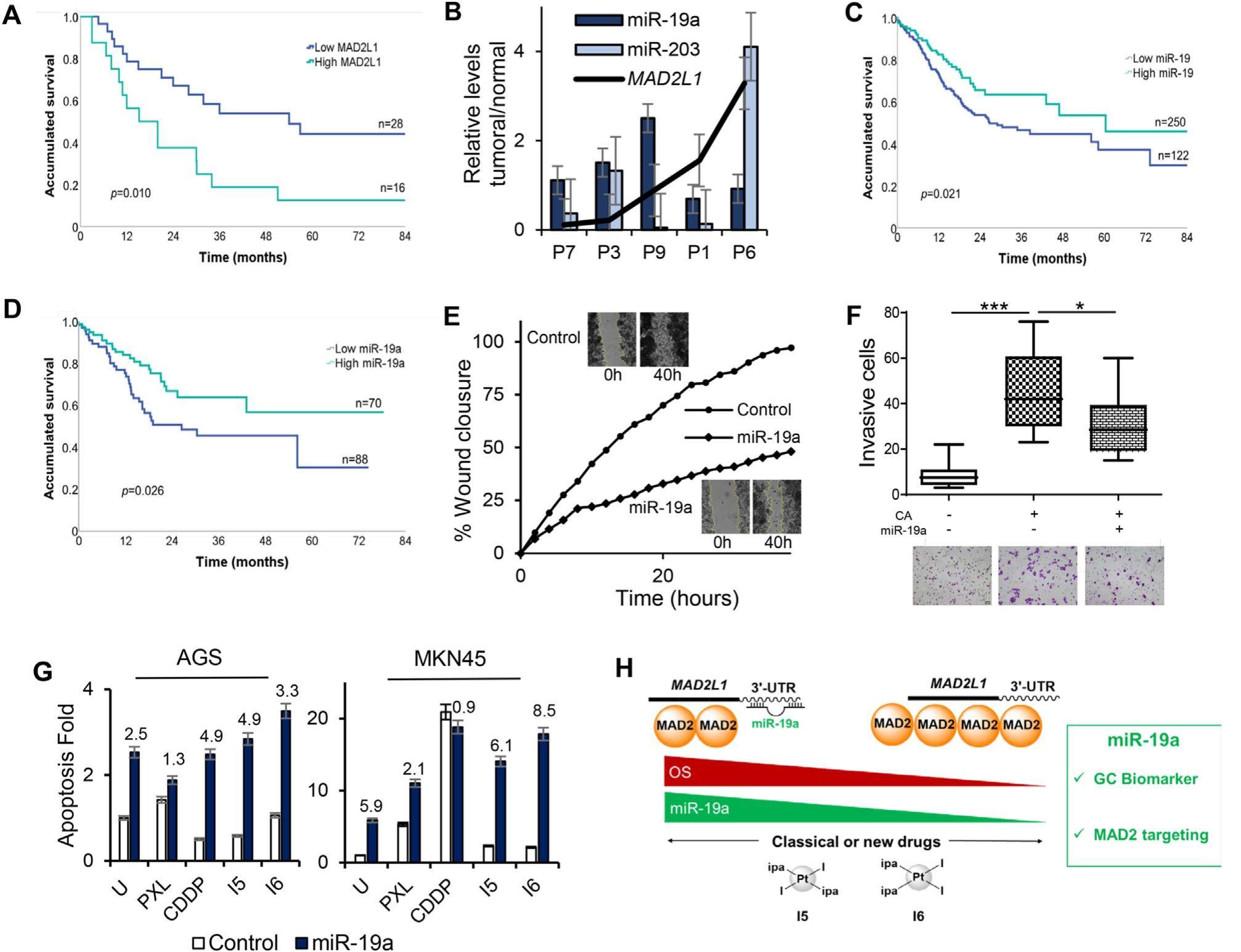
Regulatory effects of miR-19a on MAD2 expression and tumorigenesis in gastric cancer


Gastric cancer (GC) is worldwide the sixth most diagnosed and third leading cause of cancer deaths, with poor and late prognosis, probably due to post-surgery adjuvant treatment resistance and lack of athorough panel of prognostic markers. We have previously shown that mitotic arrest deficient 2 (MAD2, encoded by MAD2L1), a key protein of the spindle assembly checkpoint, is relevant in GC cells; its interference impairs migration and growth, while its overexpression correlates with tumorigenesis. Here we show a similar correlation with overall survival (OS) in a pilot patient series. We hypothesized that MAD2 overexpression might relate to micro-RNA (miRNA) deregulation. Bioinformatic analysis identified miRNAs specifically targeting MAD2L1-3′UTR. Expression of miR-19a and miR-203 inversely correlated with MAD2L1 expression in GC cell lines and patients' samples. A broader analysis using Cancer Genome Atlas data showed that only high miR-19 levels correlated with a better OS, especially in patients overexpressing MAD2L1.In GC cells, miR-19a expression reduced cell migration and invasion capability and increased apoptosis, in combination with classical and new antitumoral drugs. We propose that miR-19a is a critical regulatorofMAD2 protein inGC, with potential clinical use as a prognostic biomarker, and as a model for MAD2 interfering agent design with therapeutical potential.
